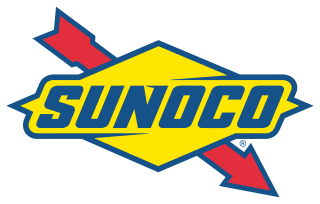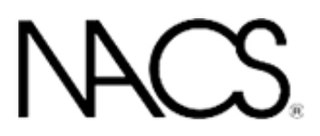Mobil is a petroleum brand owned and operated by American oil and gas corporation ExxonMobil. The brand was formerly owned and operated by an oil and gas corporation of the same name, which itself merged with Exxon to form ExxonMobil in 1999.

A filling station is a facility that sells fuel and engine lubricants for motor vehicles. The most common fuels sold in the 2010s were gasoline and diesel fuel.

Sunoco LP is an American master limited partnership organized under Delaware state laws and headquartered in Dallas, Texas. Dating back to 1886, the company has transitioned from a vertically integrated energy company to a distributor of fuels. It was previously engaged in oil, natural gas exploration and production, refining, chemical manufacturing, and retail fuel sales, but divested these businesses. Sunoco is the largest independent distributor of fuels in the United States.

The petroleum industry, also known as the oil industry or the oil patch, includes the global processes of exploration, extraction, refining, transportation, and marketing of petroleum products. The largest volume products of the industry are fuel oil and gasoline (petrol). Petroleum is also the raw material for many chemical products, including pharmaceuticals, solvents, fertilizers, pesticides, synthetic fragrances, and plastics. The industry is usually divided into three major components: upstream, midstream, and downstream. Upstream regards exploration and extraction of crude oil, midstream encompasses transportation and storage of crude, and downstream concerns refining crude oil into various end products.

Speedway is an American convenience store and fuel station chain headquartered in Enon, Ohio, with locations primarily in the Midwest and the East Coast regions of the United States wholly owned and operated by 7-Eleven. Speedway stations are located in 36 states, up significantly from its core seven-state region in the Midwest since 2012. Prior to 2021, the company was a wholly owned subsidiary of the Marathon Petroleum Corporation. It is the largest convenience store chain in central Ohio.

Marathon Petroleum Corporation is an American petroleum refining, marketing, and transportation company headquartered in Findlay, Ohio. The company was a wholly owned subsidiary of Marathon Oil until a corporate spin-off in 2011.

The Phillips 66 Company is an American multinational energy company headquartered in Westchase, Houston, Texas. Its name, dating back to 1927 as a trademark of the Phillips Petroleum Company, helped ground the newly reconfigured Phillips 66. The company today was formed ten years after Phillips merged with Conoco to form ConocoPhillips. The merged company spun off its refining, chemical, and retail assets into a new company bearing the Phillips name. It began trading on the New York Stock Exchange on May 1, 2012, under the ticker PSX.
Crack spread is a term used on the oil industry and futures trading for the differential between the price of crude oil and petroleum products extracted from it. The spread approximates the profit margin that an oil refinery can expect to make by "cracking" the long-chain hydrocarbons of crude oil into useful shorter-chain petroleum products.
The oil and gas industry is usually divided into three major sectors: upstream, midstream, and downstream. The downstream sector is the refining of petroleum crude oil and the processing and purifying of raw natural gas, as well as the marketing and distribution of products derived from crude oil and natural gas. The downstream sector reaches consumers through products such as gasoline or petrol, kerosene, jet fuel, diesel oil, heating oil, fuel oils, lubricants, waxes, asphalt, natural gas, and liquefied petroleum gas (LPG) as well as naphtha and hundreds of petrochemicals.

Aral AG is a German oil company established in 1898 as Westdeutsche Benzol-Verkaufs-Vereinigung GmbH. The company is currently owned by British conglomerate BP after it was purchased in 2002.
A jobber, or petroleum marketer, is a person or company that purchases quantities of refined fuel from refining companies, either for sale to retailers, or to sell directly to the users of those products. In essence, the jobber acts as the "middleman" between the company that refines the petroleum products and those that use them or market them at retail prices. The jobber often owns the gasoline being sold, and the station it is being sold to, but allows an operator to lease the store.

The National Association of Convenience Stores (NACS) is a trade association representing the convenience and fuel retailing industry. Founded in 1961, NACS has thousands of member companies, primarily in the United States but also in about 50 other countries. NACS conducts market research, hosts conferences and trade shows, and conducts political and legal advocacy. NACS is particularly concerned with the regulation of motor fuels, high credit card swipe fees, and labor law.
The Virginia Petroleum and Convenience Marketers Association (VPCMA) is a statewide trade association formed in 1948 providing advocacy, educational and networking services to its membership.
Western Refining, Inc., is a Texas-based Fortune 200 and Global 2000 crude oil refiner and marketer operating primarily in the Southwestern, North-Central and Mid-Atlantic regions of the United States. Western Refining (WNR) has been publicly traded on the New York Stock Exchange since January 2006 and is the fourth largest publicly traded independent refiner and marketer in the nation.

Petroleum has been a major industry in the United States since shortly after the oil discovery in the Oil Creek area of Titusville, Pennsylvania, in 1859. The industry includes exploration, production, processing (refining), transportation, and marketing of natural gas and petroleum products. In 2018, the U.S. became the world's largest crude oil producer, producing 15% of global crude oil, surpassing Russia and Saudi Arabia. The leading oil-producing area in the United States in 2019 was Texas, followed by the offshore federal zone of the Gulf of Mexico, North Dakota and New Mexico. In 2020, the top five U.S. oil-producing states were Texas (43%), North Dakota (10.4%), New Mexico (9.2%), Oklahoma (4.1%), and Colorado (4.0%).
Gilbarco Inc., doing business as Gilbarco Veeder-Root, is a supplier of fuel dispensers, point of sales systems, payment systems, forecourt merchandising and support services. The company operates as a subsidiary of Vontier and its headquarters are in Greensboro, North Carolina, United States. It employs approximately 4,000 people worldwide, with sales, manufacturing, research, development, and service locations in North and South America, Europe, Asia, the Pacific Rim, Australia, the Middle East and Africa.

GOIL PLC formerly known as GOIL Company Limited (GOIL) and Ghana Oil Company and also known as GOIL, is a state-owned Ghanaian oil and gas marketing company, formed on 14 June 1960. Currently it holds the place of Ghana's top oil marketing company, and is the only indigenous owned petroleum marketing company in Ghana.

Spirit Petroleum is an American petroleum brand created in 2002 by the Petroleum Marketers Oil Corporation, LLC. The corporation, which is majority-owned by the Energy Marketers of America (EMA), has been based in Soap Lake, Washington since 2016. Currently fuel stations in 32 states are flagged with the Spirit brand.
Parkland Corporation is a Calgary, Alberta-based energy and retail company. Parkland operates gas stations under the Pioneer, Columbia Fuels, Ultramar, Chevron, and Fas Gas Plus brands, as well as franchised Esso locations. The company holds the rights to the convenience store brand On the Run in Canada and most of the United States, and franchises White Spot's fast food restaurant chain Triple O's in Alberta, British Columbia, and Ontario. Parkland also operates commercial oil and gas businesses under the Bluewave Energy, Sparlings, and Ultramar brands.
Australia is a major petroleum producer and importer, with a number of petroleum companies involved in upstream and downstream operations. Western Australia is the largest contributor to Australia's production of most petroleum products.










